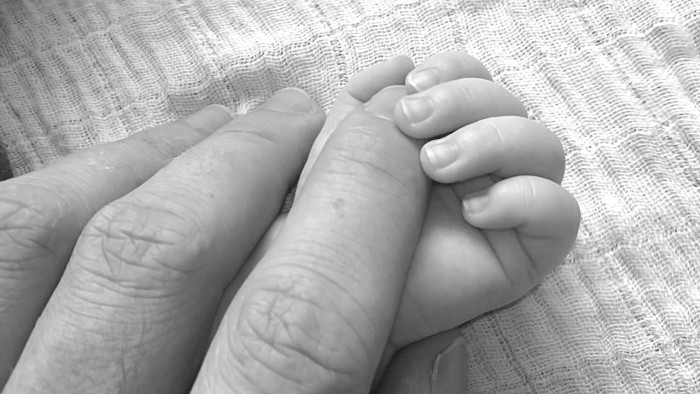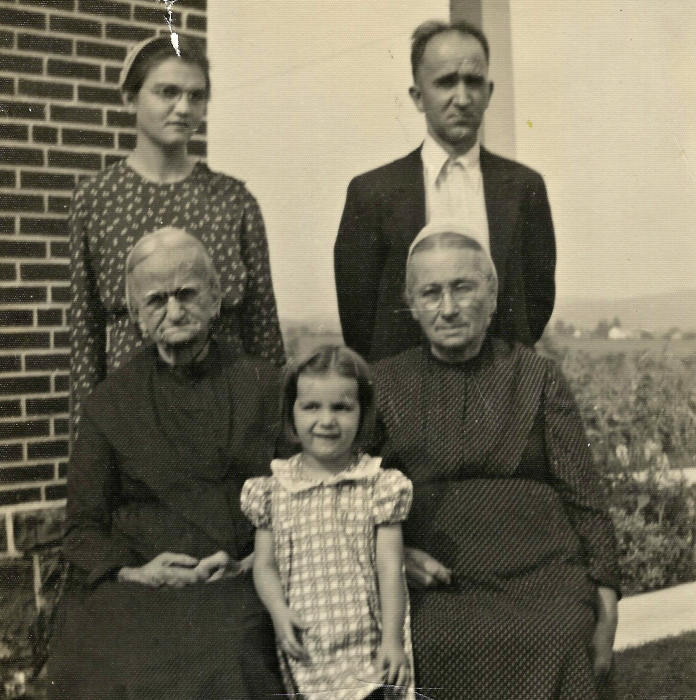A Million Little Choices
Each year on Mother’s Day, we have a Child Dedication Service at our church. This is very different than infant baptism, as it is not about the salvation of the child but, instead, to indicate the sober decision by the parents to raise this child up in a godly, Christian home. Yesterday, I had the great privilege of watching my daughter and son-in-law dedicate their son to the Lord, along with ten or so other families.
As I watched each family walk up, holding a precious baby in their arms or taking a small child by the hand, I thought back to the dedication services of our own children. We were in a smaller church at the time, so we would usually be doing the whole thing solo. In fact, my husband and I carefully picked an appropriate song for each child and even sang a duet together at each dedication (I am not really a gifted singer, so that will tell you a little something about how small the church was!)
But I realized something yesterday which I was rather oblivious to when we dedicated our own children–
Walking up to the front of the church and having the pastor pray over you and your child is the easy part. True dedication is made up of a million little choices.
Choices like–
Will I choose to scream over spilled milk or come along side and wipe up the milk and the tears lovingly?
Will I choose to hold my precious children and read Bible stories and other good books to them or will I set them in front of the TV after a long, hard day?
Will I choose to patiently work out the sibling quarrels or lay on the sofa yelling at the children?
Will I choose to learn and grow by reading and studying the Bible and other godly books or will I fill my free time with frivolous, temporal things?
Will I surrender my desire for perfection and choose to teach my children how to do chores around the home or will I just do it myself, because I can’t stand the way they do things?
Will I yield myself to the Lord and His will, or will I exhibit self-righteousness and discontentment and show my kids how not to walk with God?
Will I act differently at church than I do at home, or will my life be an example of holiness and godliness both at church and everywhere else?
Will I apologize when I’ve messed up, or will I arrogantly refuse to?
Will I spend time on my marriage and, by doing so, give the children the security of a strong and faithful home, or will I neglect it and keep them all wondering if there will be an eventual divorce?
Will I criticize and nitpick and punish in anger, or will I lovingly and gently discipline, correct, and guide?
Will I follow the world’s advice on child-rearing or will I follow God’s Word?
These, and many others, show our true heart in dedicating our children. Most of the church will never really know if this is the stuff that is happening at home. Most families show the best versions of their little group when they are at church. Only those we live with truly know the real us.
What would your kids say about you? Your spouse? Your grandkids?
Would words like godly, holy, kind, loving, supportive, and joyful be used? Or would words like angry, irritable, depressed, unhappy, selfish, and critical be used? How does your family view YOU?
It is a sobering question, is it not? And this question has everything to do with this business of dedicating our children to the Lord.
I can vividly remember an incident from when we were raising our first teenager. She wanted to do something that I didn’t want her to do. It was not a biblical issue and there was nothing wrong about what she was asking. I can remember my husband very patiently asking me “Why?”
Why didn’t I want her to do that?
And you know what? I didn’t have an answer! It was just my own selfish agenda, that’s what it was. It was one of those moments that hits you like a rock: I’d better give up my own selfish agenda or risk losing the heart of my child.
It was an easy decision and my daughter was able to do what she desired to do– which I can’t even remember what it was anymore (which goes to show you just how unimportant it really was). It was one of my million little choices. And I don’t regret one bit making the right one. I just wish I would have done that even more often.
We made so many mistakes, but, along the way, God kept teaching us both what it means to dedicate our children truly to the Lord. And we kept learning. In fact, in this new stage of parenting adults, we continue to keep learning. Life is one never-ending journey of learning. Just when you think you’ve nailed a stage down, you move on to the next one.
But, as we grow and change, may it be towards the Lord and may it be more like Jesus, so that God’s faithfulness spills over and down and through all the cracks of our weaknesses. May we never grow hard and calloused and bitter. And through a million little choices, may we show ourselves dedicated to not only raising godly children, but to being a godly example and a bright and shining light of hope in the dark world around us.










